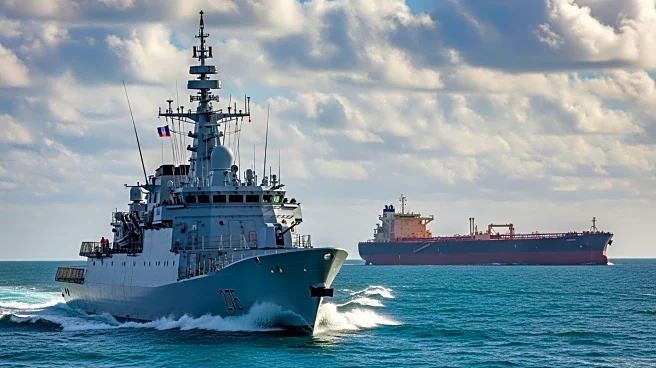What's Happening?
French military forces have boarded an oil tanker, the Boracay, believed to be part of Russia's 'shadow fleet' used to circumvent sanctions related to the Ukraine conflict. The vessel, flagged under Benin, was anchored off western France after leaving Russia and was involved in incidents near Denmark involving unidentified drones. French President Emmanuel Macron stated that the crew committed serious offenses, prompting an investigation by Brest prosecutors. The 'shadow fleet' consists of hundreds of tankers registered in various countries, facilitating Russian oil exports despite Western sanctions.
Why It's Important?
The interception of the Boracay highlights ongoing international efforts to enforce sanctions against Russia, aiming to limit its energy exports following the Ukraine invasion. The existence of a 'shadow fleet' underscores the challenges in tracking and regulating global oil trade, impacting geopolitical relations and energy markets. The situation raises concerns about maritime security and the effectiveness of sanctions in curbing Russian economic activities.
What's Next?
The investigation into the Boracay's activities may lead to further scrutiny of vessels linked to Russia's 'shadow fleet.' Western nations could enhance maritime monitoring and enforcement measures to prevent sanction evasion. The incident may prompt diplomatic discussions on strengthening international cooperation in sanction enforcement.
Beyond the Headlines
The use of a 'shadow fleet' raises legal and ethical questions about the transparency and accountability of global shipping practices. The situation may influence future policies on maritime security and international trade regulations, potentially affecting global oil supply chains and market stability.









